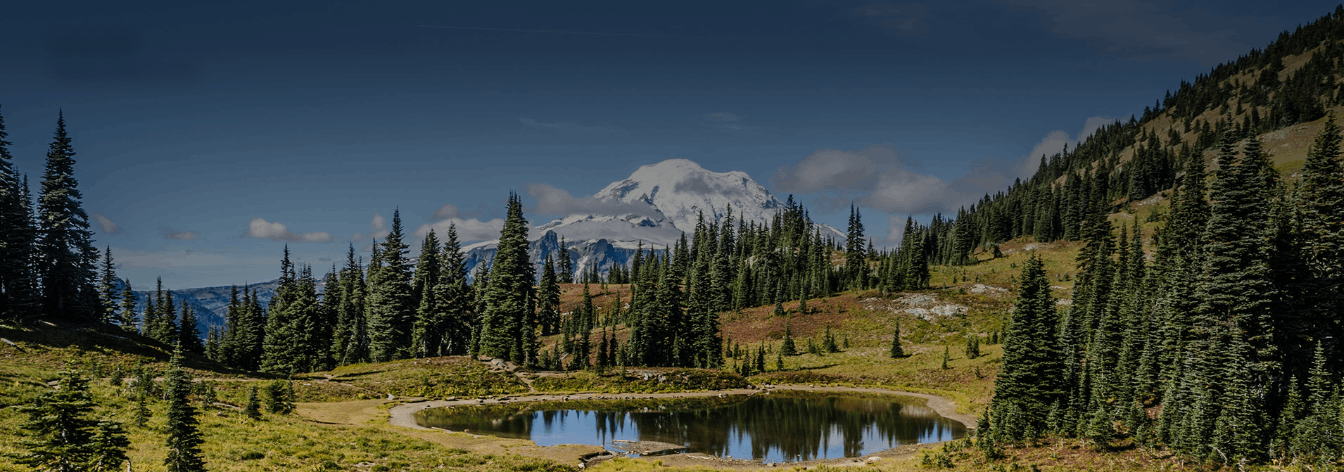Public Lands in 2025: Key Policy Shifts Under the Trump Administration
Share
Regardless of your political opinion, reading this post likely means you have a passion for the outdoors, exploration, and travel. Public land in the United States not only preserves a place's natural and cultural resources but allows us to recreate freely in those protected environments. Under the current presidential administration, our public lands, national parks, and protected areas are under threat. If you're planning a summer of adventure in 2025, brush up on the latest policy changes that may affect your access to federally protected lands.
What are Public Lands?

Public lands are large swaths of land in the United States that are technically owned by the collective public and managed by the government for the benefit of the public. Public lands make up nearly 30% of the land in the United States and are set aside by the government for a variety of purposes, including conservation, resource extraction, cultural preservation, and recreation. Types of public lands include national parks, Bureau of Land Management (BLM) Lands, National Forests, National Wildlife Refuges, National Monuments, Wilderness Areas, State Parks and Forests, and sometimes Tribal Lands.
Policy Changes in 2025

Under the Trump Administration, public lands are shrinking. Due to numerous policies targeting the federal workforce, expanding the energy industry's land access, and reducing protections for National Monuments and other public lands, adventurers can expect fewer resources dedicated to protecting public lands.
Expansion of Energy Development on Public Lands

In an effort to boost domestic energy production, the Trump administration has increased access to mining and drilling operations across public land in the United States. The Department of the Interior has streamlined permitting processes, reducing environmental review times from years to mere weeks. This fast-tracking aims to facilitate oil, gas, and mineral extraction, particularly in the Western US. Despite public opposition, iconic wilderness areas like the Arctic National Wildlife Refuge in Alaska have been reopened for oil and gas exploration.
Reduction of National Monument Protections

Leaked documents suggest that the current administration is considering shrinking six national monuments, including Bears Ears and Grand Staircase-Escalante, to allow for increased resource extraction. This policy shift would impact public and tribal lands.
Workforce Reductions in Federal Land Agencies

Massive federal layoffs spurred by the controversial Elon Musk-led agency, DOGE, have impacted several agencies that manage public lands, including the National Park Service (NPS). In February, approximately 1,000 NPS employees were laid off, which has led to operational challenges in prominent national parks like Yosemite and Yellowstone. These operational challenges will likely affect visitors who may see reduced access to terrain and park services and reduced search and rescue infrastructure.
Policy Changes Affecting Marine and Forest Conservation

Protected land across the nation has been opened to commercial use. President Trump recently lifted fishing protection for the Pacific Islands Heritage Marine National Monument, a nearly 500,000 square mile ocean area. Additionally, protections have been removed from over half of the National Forest System, allowing for increased logging activity. The loss of these critical protections for these environments will threaten endangered marine species and fragile ecosystems and lead to rapid deforestation and habitat loss.
Implications for Campers and Outdoor Adventurers
For campers exploring public lands this summer, these policies may impact our ability to access and enjoy them. These policies will also affect the resources available within those public lands, such as park rangers, search and rescue, trail maintenance, and more. If you plan on adventuring this summer, stay informed, plan ahead, and support conservation efforts whenever possible.
As policies continue to evolve, becoming part of the conversation around public land and conservation remains invaluable. If you have not already done so, write a letter to your congressional representative expressing your opinions on the recent public land policy and advocating for more protections for the lands we enjoy.
At Camp N Car, we believe access to public land isn’t a political issue. It’s about preserving the freedom to roam, explore, and connect with nature. As a community of outdoor and adventure enthusiasts, we must protect the wild places we love so future generations can experience them too. That’s why we build vehicles that empower people to access these spaces, whether it’s a full van conversion or a car camping setup for your daily driver.



